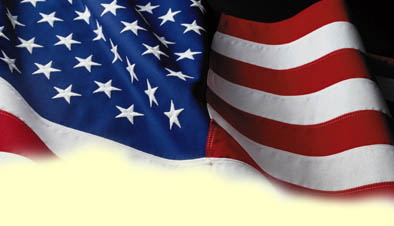Long May She Wave

Not since Pearl Harbor have the words “Red, White and Blue,” “Stars and Stripes,” and “Old Glory” meant so much. Never again will this generation fail to feel when the American flag is hoisted at a ball game. Before Sept. 11, perhaps we took off our cap. Maybe we stopped talking and quit munching popcorn as we glanced in the direction of the flagpole. Most of us showed respect, but did not feel respect. Raise that flag now, and it makes grown men cry. Even the hair on the backs of our necks stands to attention. And when did we fly the flag? Most of us never did. A few unfurled the flag July 4 but rarely was it displayed at our homes more than a couple of days during the year. Now, many Americans have given Old Glory a permanent place of honor, mounted in front of their homes, maybe even atop a newly-installed flagpole. Flag manufacturers can’t keep up with the demand. Lapel pins. Bumper stickers. T-shirts. Even tattoos. Americans can’t get enough Red, White and Blue. It is a time in our history that is long over due; a time when patriotism means something to everyone, no matter what political party, or race or religion.Words spoken by President Woodrow Wilson in 1917 ring true today: “This flag, which we honor and under which we serve, is the emblem of our unity, our power, our thought and purpose as a nation. It has no other character than that which we give it from generation to generation. The choices are ours. It floats in majestic silence above the hosts that execute those choices, whether in peace or war. And yet, though silent, it speaks to us–speaks to us of the past, of the men and women who went before us, and of the records they wrote upon it….Woe be to the man or group of men that seeks to stand in our way in this day of high resolution when every principle we hold dearest is to be vindicated and made secure for the salvation of the nation.”Although the pledge to the flag was first used in public schools in 1892, it did not receive official recognition by Congress until 1942. The phrase “under God” was added to the pledge by Congress in 1954. At that time, President Dwight Eisenhower said that “in this way we are reaffirming the transcendence of religious faith in America’s heritage and future; in this way we shall constantly strengthen those spiritual weapons which forever will be our country’s most powerful resource in peace and war.”
